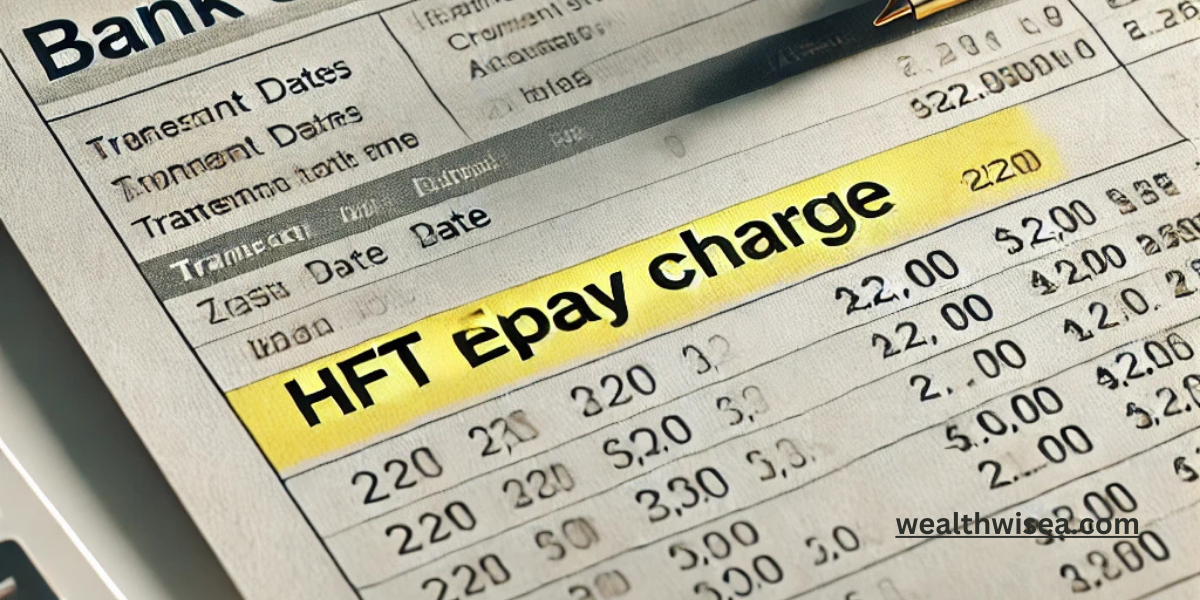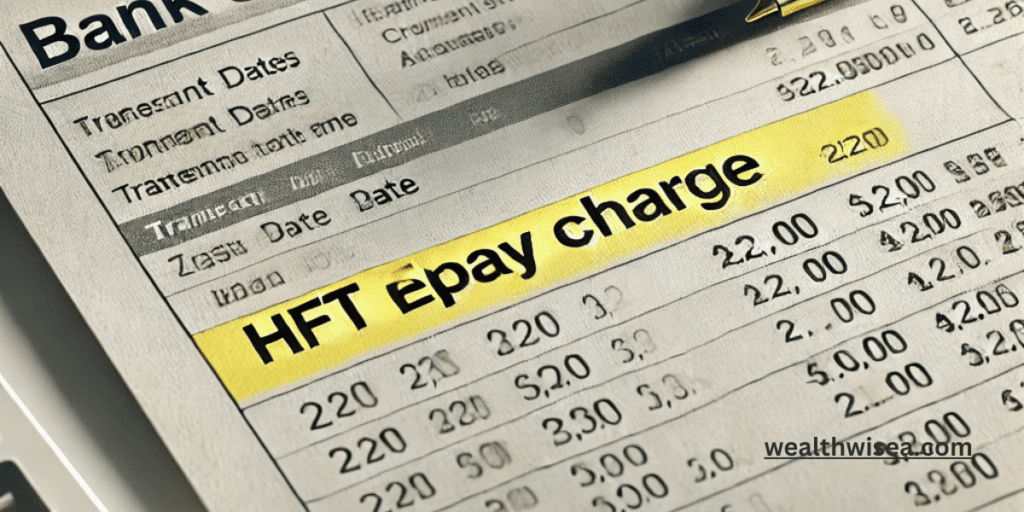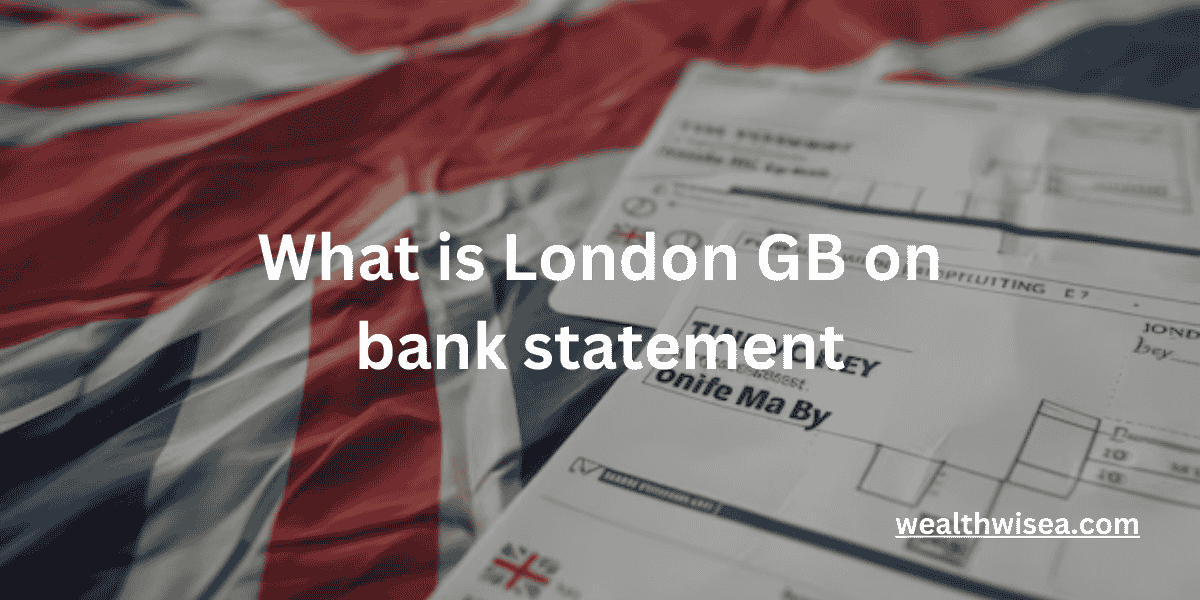What Is the HFT ePay Charge on Your Bank Statement?

Have you noticed an unfamiliar HFT ePay charge on your bank statement and wondered what it means? You’re not alone! Bank statements can be tricky to decipher, especially when charges you don’t immediately recognize start popping up. In this article, we’ll break down what the HFT ePay charge is, why it might appear on your statement, and what steps you can take if you suspect it’s an error.

Understanding the HFT ePay Charge
What Is the HFT ePay Charge?
The HFT ePay charge on your bank statement usually indicates an online or electronic transaction made through a third-party payment processor, typically associated with retail or subscription services. HFT stands for “High-Frequency Trading,” but don’t let that confuse you—this term often just describes fast transaction processing, rather than actual stock market trading.
In most cases, HFT ePay charges show up when you’ve authorized a recurring subscription or a one-time purchase with an online vendor that uses HFT ePay as their payment processor. These charges may appear without the merchant’s name, making them harder to identify at first glance.
Common Reasons for the HFT ePay Charge
- Subscription Services: Many subscription-based services, especially those related to online content, entertainment, or software, use third-party processors like HFT ePay for seamless payments.
- One-Time Purchases: Retailers sometimes utilize ePay services to manage customer transactions, especially for items purchased online.
- Trial Services: Signing up for a free trial? Some services may require your payment details upfront and initiate charges through HFT ePay once the trial ends.
- Automatic Billing: If you’ve allowed automatic payments with a company using HFT ePay, these recurring charges may continue until you cancel your service or update your payment settings.
Is the HFT ePay Charge Legitimate?
Most of the time, an HFT ePay charge is perfectly legitimate and indicates that you authorized a transaction with a company using this payment processor. However, if you’re unable to link this charge to any known purchase, it’s wise to investigate further. Sometimes, unfamiliar charges may signal potential fraud or unauthorized access to your account.
What to Do if You Don’t Recognize the Charge
Not recognizing the HFT ePay charge? Here are a few steps you can take to verify it:
- Review Your Purchase History: Go through recent purchases or subscriptions that might explain the charge.
- Contact Customer Support: If you think the charge relates to a specific service, reach out to their support team for confirmation.
- Check for Unauthorized Transactions: Look for other unexpected charges on your account. Fraudulent charges often start small to avoid suspicion.
- Report Suspected Fraud: If the charge doesn’t seem legitimate, contact your bank to dispute it and potentially block further transactions from that source.
How to Avoid Future Unknown Charges
To prevent mysterious charges like the HFT ePay from catching you off guard, here are some quick tips:
- Monitor Your Statements: Regularly checking your bank statements helps you spot unknown transactions sooner.
- Use Alerts: Many banks allow you to set up notifications for each transaction made with your card, making it easy to verify purchases in real-time.
- Be Cautious with Free Trials: When signing up for free trials, set reminders to cancel if you don’t wish to continue. Many services convert to paid subscriptions after the trial ends.
Related Questions About Bank Statement Charges
Bank statement charges often raise questions, especially when terms aren’t straightforward. If you’ve encountered other unclear charges, check out articles that cover common queries like What Is the VIOC Charge on Your Bank Statement? to learn more.
Additionally, if you’re curious about how specific types of apps or services might appear on your bank statement, read Does Grindr Show Up on Your Bank Statement or Credit Card? for insights.
Final Thoughts
Spotting a charge like HFT ePay on your bank statement can be unsettling, but it’s often nothing more than a regular purchase. Taking a proactive approach to track and understand your expenses is key. Always be vigilant with your bank statements, and don’t hesitate to reach out to your bank or service providers if something doesn’t add up.
In the end, being informed about charges like HFT ePay can help you manage your finances with greater peace of mind.
FAQs
1. What is the HFT ePay charge on my bank statement?
The HFT ePay charge usually indicates a transaction processed through a third-party payment system associated with various online services or subscriptions. It may not always show the merchant’s name, making it harder to identify.
2. Why do I see an HFT ePay charge that I don’t recognize?
If you see an HFT ePay charge you don’t recognize, it could be related to a subscription or a purchase you made recently. Sometimes, charges can be linked to trial services that convert to paid subscriptions. Reviewing your recent transactions may help clarify the charge.
3. How can I dispute an HFT ePay charge?
If you believe the HFT ePay charge is unauthorized, contact your bank to dispute it. They will guide you through the process of reversing the charge and possibly blocking any future transactions from that source.
4. Are HFT ePay charges common for subscription services?
Yes, many subscription-based services use payment processors like HFT ePay. If you have multiple subscriptions, it’s worth checking if one of them is linked to this charge.
5. What should I do if I suspect fraud related to the HFT ePay charge?
If you suspect fraud, immediately contact your bank to report the issue and investigate further. It’s essential to monitor your account regularly to catch any unauthorized transactions as soon as possible.
6. Can I prevent future HFT ePay charges?
To avoid future charges, monitor your subscriptions and regularly check your bank statement. Setting transaction alerts can also help you stay informed about your account activity.
7. Where can I learn more about unfamiliar charges on my bank statement?
For more information on other common charges, check out articles like What Is the VIOC Charge on Your Bank Statement? and Does Grindr Show Up on Your Bank Statement or Credit Card?.




